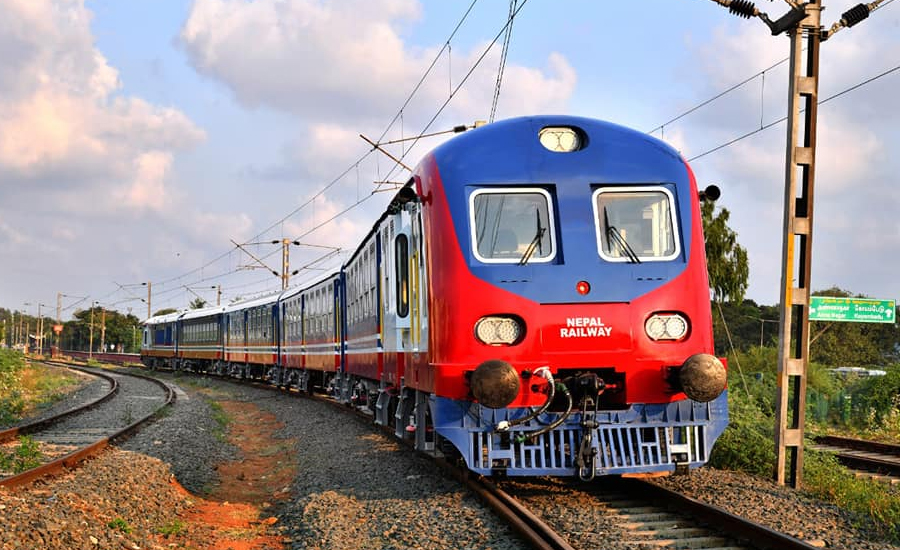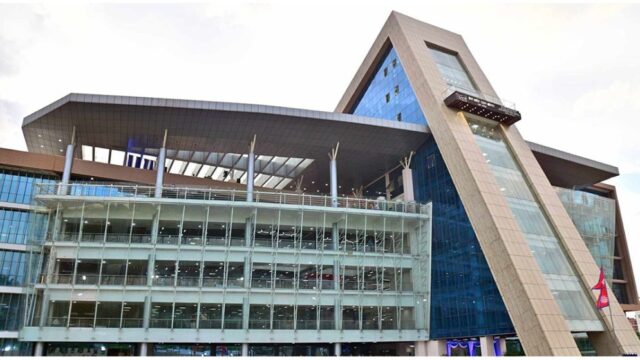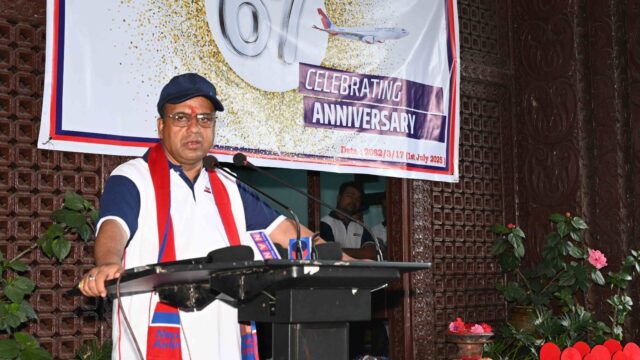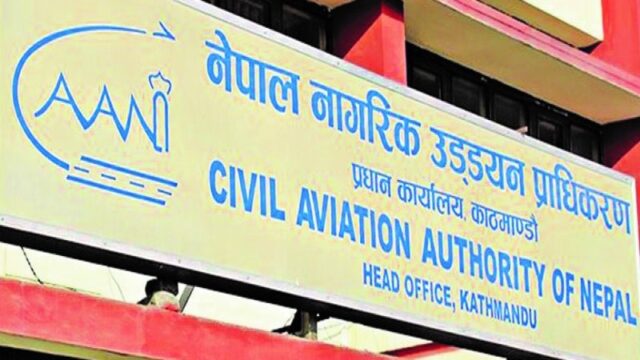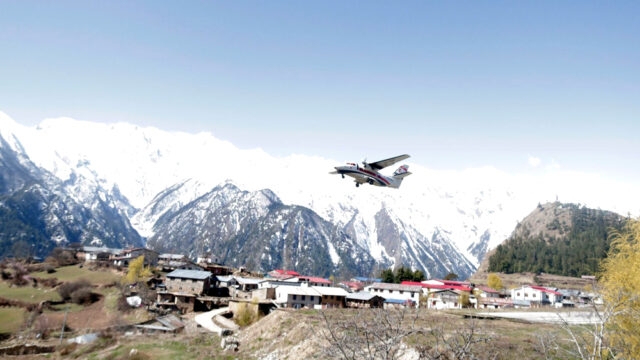In recent days, Prime Minister KP Sharma Oli has been vocal about enhancing railway services. On July 30, he directed ministers and secretaries to add two more trains to the Bhangaha (Bijalpura) – Janakpur – Jaynagar route. He reiterated this point during a program organized by the Road Department on Sunday.
Minister for Physical Infrastructure Devendra Dahal and Secretary Keshav Kumar Sharma, along with other staff and engineers, were instructed by Oli to expand railway transportation due to the high passenger demand. He emphasized the need for two additional trains on the Janakpur railway route and extended the railway line to Bardibas.
During his previous tenure as Prime Minister, the Indian government reconstructed and handed over the railway line, following which trains were purchased from India. Oli has been keen on making the Janakpur railway and its routes a matter of pride.
Despite his focus on expanding the railway services, there are challenges with the Nepal Railway Company and its operations. The trains, currently running at a loss, heavily depend on the Indian company Konkan Railway Corporation Limited (KRCL) for operations.
Contrary to the Prime Minister’s assertion, the railway line does not lack passengers; rather, it faces an excess of passengers beyond its capacity. However, the revenue from ticket sales is insufficient to cover operational costs, putting the Nepal Railway Company in debt.
The broad-gauge railway, which began operations on April 2, 2022, has been running at a loss since its inception. The diesel trains, purchased for NPR 1.03 billion in October 2020, only began regular service after one and a half years.
According to Niranjan Jha, General Manager of Nepal Railway Company, the trains incur an annual loss of approximately NPR 150 million. The high operational costs are attributed to technical personnel and various services procured from the Indian government. “We are managing only essential expenses considering our financial condition,” Jha said, “even with efforts to reduce costs by NPR 20-30 million annually, we are yet to achieve profitability.”
Under the agreement with the government, the Indian company can receive up to NPR 480 million annually. However, due to the limited services availed, some costs have been reduced. The contract with the Indian company indicates high remuneration for train pilots, although it has been revealed that pilots do not receive such high salaries. An internal report suggests that expenses paid to the Indian company can be reduced to NPR 80 million if the Nepal Railway Company operates the trains itself.
Currently, the train departs from Bhangaha in Mahottari every morning and travels 52 kilometers to Jaynagar, India. It runs three times a day on the Jaynagar-Janakpur (29.6 kilometers) route, returning to Bhangaha in the evening. According to General Manager Jha, the trains are often overcrowded, especially on Sundays, public holidays, and market days in Jaynagar.
Despite having two trains, simultaneous operation is hindered due to maintenance needs. “We need at least one more, ideally two more passenger trains,” Jha said, “but we are not in a financial position to purchase them ourselves.”
With a fixed fare of NPR 70, the railway service is unable to cover its operational costs. “Reducing reliance on Indian personnel and services can significantly cut costs,” Jha stated.
Currently, 20 Indian personnel, including pilots, station masters, and track engineers, are employed at high salaries. The Railway Company had requested the Public Service Commission to conduct exams in September to replace Indian personnel with local staff, but the exams are scheduled for November.
To reduce operational costs, a washing pit is being constructed in Bhangaha for daily train cleaning and maintenance, which will save significant expenses currently paid to the Indian company. The Railway Company is also building its own fueling station.
Exploring potential solutions to cover the railway service’s losses, the company has identified the operation of cargo trains as a viable option. “Feasibility studies show that operating a cargo train is possible, and local traders are also demanding this service,” Jha said. “Running a cargo train will allow bulk goods like coal and fertilizers to reach local areas directly.”
Citing India’s model where passenger rail losses are offset by cargo operations, Jha emphasized the need for Nepal to run its own cargo trains to sustain the railway line. “We proposed running a cargo train to the ministry last December, and discussions are ongoing,” he said, “the Indian embassy in Nepal is also positive about this initiative.”
With Prime Minister Oli’s support for upgrading and expanding railway services, the Railway Company is optimistic about turning the Janakpur railway into a profitable operation run by Nepalese personnel and technology. “The Prime Minister’s push for adding two more trains is crucial,” Jha said, “improving service quality will allow passengers to travel comfortably and benefit from the railway service.”
